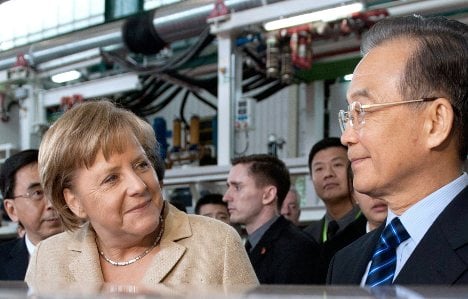“Firstly, our biggest export market is Europe,” Wen said in the southern city of Guangzhou on Saturday, adding that Europe was also a main source of technology for China.
“Helping stability in the European market is actually helping ourselves… We have to keep import and export policies stable.”
Wen was echoing comments he made on Thursday during German Chancellor Angela Merkel’s visit to China, intended to boost her hosts’ confidence in Europe.
At a conference with Merkel in the capital on Thursday, China’s premier warned of an “urgent” need to solve the European debt crisis and said Beijing was looking at ways it could contribute to bailout funds.
The sovereign debt crisis in Europe has seen a wave of credit-rating downgrades and brought Greece to the brink of bankruptcy.
Wen called on the international community to work together on the embattled region, which is China’s top export market.
“China is investigating and evaluating ways, through the International Monetary Fund, to be more deeply involved in solving the European debt problem via ESM/EFSF channels,” Wen said.
He was referring to the European Financial Stability Facility, a temporary rescue fund that was established to help struggling economies in Europe, and the European Stability Mechanism – a newer, permanent fund.
China, the world’s second-biggest economy, has watched with increasing concern as the debt crisis has deepened, repeatedly urging European leaders to get a grip on the situation.
AFP/bk




 Please whitelist us to continue reading.
Please whitelist us to continue reading.
Member comments